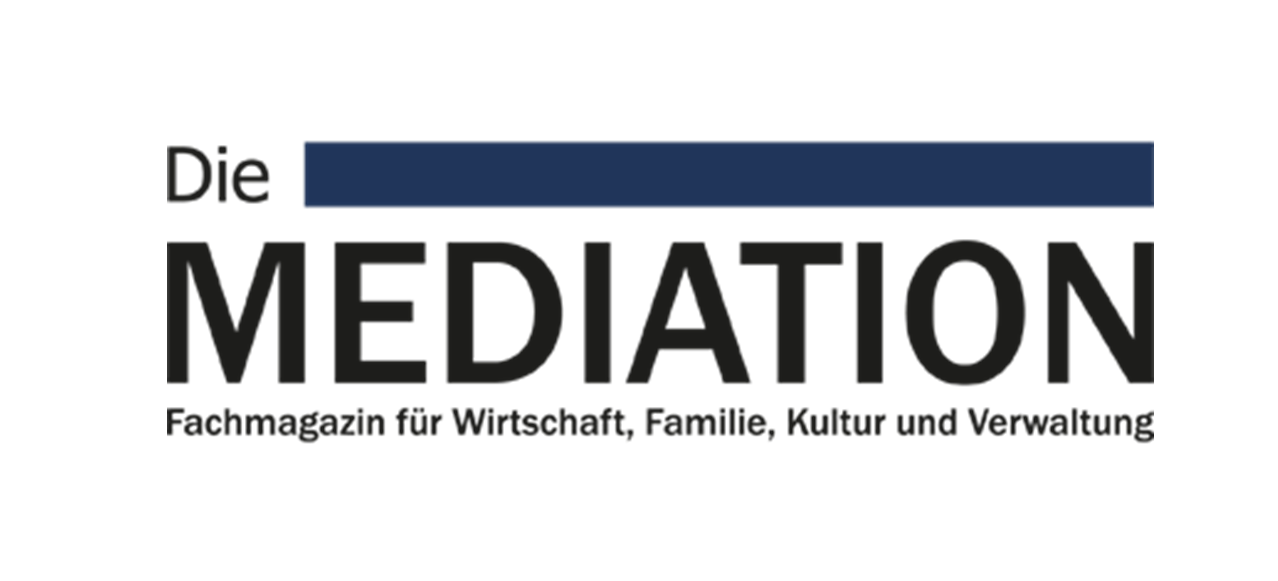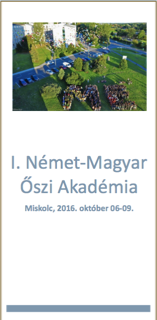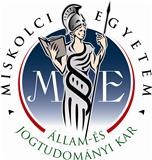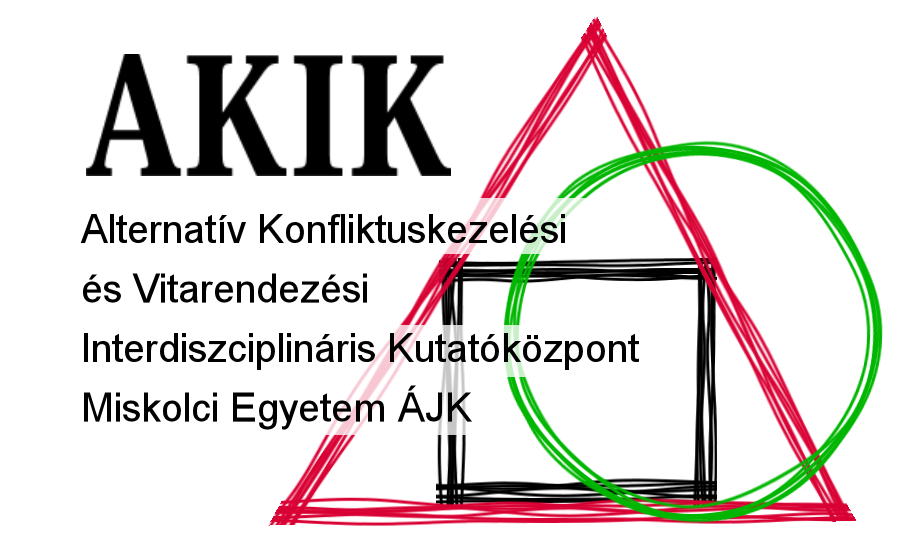UNIVERSITY OF MISKOLC - FACULTY OF LAW
Our faculty, the fourth oldest legal faculty in the country celebrated in 2016/17 the 350th anniversary of the establishment of the legal education in Eperjes-Miskolc and the 35th anniversary of the re-foundation of the legal education in Miskolc.
 The evangelical legal education began in the College of Eperjes in 1667. The articles of association of the College from 1665declared the following three noble objectives for the institution: “it should become the church of the worship of the Almighty God, the universitas of the true sciences and the impregnable fortress of patriotism forever.”
The evangelical legal education began in the College of Eperjes in 1667. The articles of association of the College from 1665declared the following three noble objectives for the institution: “it should become the church of the worship of the Almighty God, the universitas of the true sciences and the impregnable fortress of patriotism forever.”
Among the first teachers of the College we have to mention – among others – Mihály Pankratius, the author of the first work about Hungarian public law, István Maléter, Gusztáv Csengey, Tamás Vécsey, István Ereky, Albert Berzeviczy, Ödön Horváth, and Gyula Moór. (Stipta I., 1989)
 The history of the Athens of the Tarca-shore (as Eperjes was mentioned), the participation of its students – among them Imre Thököly and Lajos Kossuth – and teachers in the history of Hungary proved that the founders of the College achieved their aim.
The history of the Athens of the Tarca-shore (as Eperjes was mentioned), the participation of its students – among them Imre Thököly and Lajos Kossuth – and teachers in the history of Hungary proved that the founders of the College achieved their aim.
The quality of legal education was extremely high. From 1815, the legal education began within the framework of the newly established department of law, and as a separate institution with the name of Evangelical Legal Academy of Eperjes.
With the Czech occupation of Eperjes, the declaration of the independent Czechoslovakian State and the Treaty of Trianon, the situation became hopeless. “The rooms of the College were occupied by Czech soldiers; the Hungarian education was forbidden. Our resisting teachers were arrested for a while.” (Károly Mikler, the first dean of the Legal Academy of Miskolc, 1922)
The Evangelical Legal Academy of Eperjes then moved to Miskolc and became the first higher educational institution of the city.
The relocation in 1919 was successful: the Evangelical Legal Academy of Miskolc could also fulfill the objectives of its founders laid down in 1665, which could be thanked to its committed and highly educated professors.
Among them we have to mention Elemér Pólay, professor of Roman law; Győző Bruckner (in the picture), professor of legal history; Ervin Hacker, professor of criminal law and Béla Zsedény, professor of constitutional law who later became the president of the Temporary National Assembly in 1944 and later died a martyr's death.
In 1949, the communist regime terminated the Evangelical legal academy as well as the catholic and protestant legal academies. Since then the dictatorship aimed that even the memory of the ecclesiastical legal education became forgotten.
However, in a short time the lack of lawyer became a problem in the region, therefore the state leaders decided to establish a new faculty of law. The new faculty was founded in Miskolc, which was thanked to Dr. István Novák, a former professor of the Evangelical Legal Academy of Miskolc. However, in this political environment the connection between the new legal faculty and the former Evangelical Legal Academy of Eperjes-Miskolc cannot be created.
 The ancestor of the University of Miskolc is the mining and metallurgy institute (Bergschule) which was founded in Banská Štiavnica in 1735 by Károly the Third, where the first in the world were teaching advanced mining and metallurgy skills (in Freiberg from 1765, in Berlin from 1770, in St. Petersburg from 1773). In 1762, Maria Theresa organized the school as an academic institution ("k.k.Bergakademie"). With this, for the 18th century “an internationally renowned vocational education institution serving all-imperial purposes in Hungary, under the administration of a central chamber in Vienna, is being established in Hungary, and during this period the government pays special attention to its development and teaching staff.
The ancestor of the University of Miskolc is the mining and metallurgy institute (Bergschule) which was founded in Banská Štiavnica in 1735 by Károly the Third, where the first in the world were teaching advanced mining and metallurgy skills (in Freiberg from 1765, in Berlin from 1770, in St. Petersburg from 1773). In 1762, Maria Theresa organized the school as an academic institution ("k.k.Bergakademie"). With this, for the 18th century “an internationally renowned vocational education institution serving all-imperial purposes in Hungary, under the administration of a central chamber in Vienna, is being established in Hungary, and during this period the government pays special attention to its development and teaching staff.
The Academy of Mining in Banská Štiavnica puts Hungarian higher education at the forefront of the world, with its teaching methods setting an example for the creation of a particularly important type of institution for new, modern higher education (École Politechnique in Paris)”. (Heilauf Zs., 2014) The school in Selmec served as an example in the establishment of later European technical colleges.
“It was in this atmosphere that Ignác Born (1742–1791) formed the world's first technical association (Societät der Bergbaukunde) in including immortals like Lavoisier, Goethe, and J. Watt.” (Zsámboki L., 1996-2000) From 1846, forestry training was also held at the Academy.
Education was suspended between 1848 and 1850, as students enlisted in Kossuth's army during the Hungarian War of Independence. After the Austro-Hungarian Compromise of 1867, the language of instruction became Hungarian instead of German, and the name of the institution was changed to the Royal Hungarian Academy of Mining and Forestry. In 1920, after the Treaty of Trianon, Banská Štiavnica became part of Czechoslovakia, so the Academy was forced to move; Sopron gave home to the stateless school.
By the Act XXIII of 1949, the Hungarian Parliament ordered that "in order to enhance higher technical vocational training, a Technical University of Heavy Industry should be established in Miskolc. The university is divided into the Faculty of Mining and Metallurgical Engineering". Thus, the University in Miskolc was established in 1949, which consisted of the Faculty of Mining and Metallurgical Engineering relocated from Sopron and the newly established Faculty of Mechanical Engineering. 18thSeptember 1949 was the first day of teaching. And in 1950, construction began. The first graduation ceremony in Miskolc was in 1953.
The (re)-foundation of the legal education in Miskolc was taken place in 1980. The education began in September 1981, with 120 full time and 60 correspondent students. The  decision was preceded by several years of preparatory work, the result of which can be summarized that expert-supply of Hungary shifting to market economy – especially in the north-east region – can only be fulfilled with the establishment of the Faculty of Law.
decision was preceded by several years of preparatory work, the result of which can be summarized that expert-supply of Hungary shifting to market economy – especially in the north-east region – can only be fulfilled with the establishment of the Faculty of Law.
This objective was completely reached by our Faculty.
The main objective of each university and faculty is the education and the research – they are our aims as well. However, our third important objective and obligation is the service of our community. The city of Miskolc, the county of Borsod-Abaúj-Zemplén and the region of North-East Hungary is the place where we live, which rely on us and which we would like to serve. We belong to this region and form its integrant part.
An important part of our connection that we undertake the heritage of the former Evangelical Legal Academy of Miskolc as a spiritual heir. The first contact with the legal academy took place in the 1990’s. In 1991 the Legal Academy of the Evangelical Church and the Faculty of Law of the University of Miskolc concluded an agreement, in which the legal faculty of Miskolc was declared to be the carrier of its spiritual heritage. The agreement was signed by Tibor Fabiny, the professor of the Evangelical Legal Academy; Zoltán Novotni, professor of civil law and dean of the Faculty of Law; and János Zlinszky, professor of Roman law and later the founding dean of the catholic legal faculty.
 In 2016, the University of Miskolc and the Regional Evangelical Church concluded a new agreement which confirmed the status of the legal faculty of Miskolc as the spiritual heir of the legal academy of Eperjes-Miskolc. The agreement was signed as a solemn witness by the 97-year-old Lóránd Boleratzky, the canon law professor (and former student) of the Evangelical Legal Academy of Miskolc and the honorary citizen of the University of Miskolc, who received outstanding merits in the care of the spiritual heritage of the legal academy of Eperjes-Miskolc.
In 2016, the University of Miskolc and the Regional Evangelical Church concluded a new agreement which confirmed the status of the legal faculty of Miskolc as the spiritual heir of the legal academy of Eperjes-Miskolc. The agreement was signed as a solemn witness by the 97-year-old Lóránd Boleratzky, the canon law professor (and former student) of the Evangelical Legal Academy of Miskolc and the honorary citizen of the University of Miskolc, who received outstanding merits in the care of the spiritual heritage of the legal academy of Eperjes-Miskolc.
Several prominent representatives of the jurisprudence played or plays an important role in the legal education in Miskolc re-founded 35 years ago. We still remember to the work of the deceased Tibor Horváth, professor of criminal law; Ferenc Kratochwill, professor of criminal procedure law; László Gáspárdy, professor of civil procedure; György Bíró, professor of civil law. Several outstanding professionals as well as present and former deans of other faculties studied at our Faculty. Furthermore, nine former and current members of the Constitutional Court also have connection with the Faculty.
As the acknowledgement of the high-quality education in the legal faculty of Miskolc the Accreditation Commission of the Hungarian High Education awarded both the legal faculty and the Deák Ferenc Doctoral School of Law with the title “Excellence place” in 2006, in the 25th anniversary of the re-foundation of the legal education in Miskolc.
We are also pride that our Faculty achieved an extraordinary result between the law faculties in the proportion of the qualified teachers. (HVG-rankings)
 The safeguarding of our heritage is also important for the law students. The Corporation of the Law Students of Miskolcestablished in 1920 was aimed to maintain the former customs of Eperjes. The four students committed for the War of Independence – like Kossuth – regularly organized the so-called “Jurist’s March”, while the respect of the Dessewffy family and its martyr sons who former supported the Legal Academy significantly contributed to the creation of the cult of 6th October in Eperjes.
The safeguarding of our heritage is also important for the law students. The Corporation of the Law Students of Miskolcestablished in 1920 was aimed to maintain the former customs of Eperjes. The four students committed for the War of Independence – like Kossuth – regularly organized the so-called “Jurist’s March”, while the respect of the Dessewffy family and its martyr sons who former supported the Legal Academy significantly contributed to the creation of the cult of 6th October in Eperjes.
In December 1999, the “Jurist’s Friend Association” (JÖBE) was founded, which organized with the the Valéta Commission and the Student Local Government first renewed “Jurist’s March” in 2003. It was the first time when law students cooked the “krampampuli”, which was named “Blood of Justitia”.
One of the specialties of the law faculty of Miskolc is that both the traditions and customs of Selmecbánya and those of Eperjes forms an important part of its life.
In connection with the latter a custom of the students of the legal academy of Miskolc and Eperjes was the classic military fencing. In our town – among others – Aladár Gerevich, father of our Olympic champion fencer educated the students to the “science of fencing”. The department of Miskolc of the Hungarian Fencing School grounded in 2015, leaded by dr. Tamás Tóth, provides the possibility for the law students to learn the art of fencing as well as the transmission of its spirit.
In 2014 the student traditions of Selmec were admitted to the National List of the UNESCO Cultural Heritage.
The basis of these traditions is the concept of camaraderie and togetherness which connect the students of all faculties of the University of Miskolc.
Besides the importance of the protection of our heritage, the main objective of our Faculty is to deliver a knowledge which correspond to the challenges of the 21th century and takes into account the needs of the future.
In order to meet these challenges, we developed a complex and successive education system:
- Legal High Educational Training
- BA-courses
· Administration and Public Administration Manager (ceasing courses)
· Legal Administration Manager
· Employment Relations and Social Security Administration
- MA-courses
· Public Administration Master (ceasing course)
· Employment Relations and Social Security Administration
· Criminologist
- Undivided courses
· Lawyer
- Doctoral (PhD) course
- Specialized Trainings for Lawyers, LL.M. courses, Adult education
·  Specialized courses for lawyers in the fields of data protection law, tax law, insurance law, EU-law, economic criminal law, tourism law, commercial law, transportation law, company and corporate law, capital market and bank law, law enforcement and juvenile justice
Specialized courses for lawyers in the fields of data protection law, tax law, insurance law, EU-law, economic criminal law, tourism law, commercial law, transportation law, company and corporate law, capital market and bank law, law enforcement and juvenile justice
· Consultant in the field of data protection law, employment and rehabilitation law, disabled people, child- and youth protection, justice, social and labour relations, protection of national and ethical minorities, senior human resources and social security
· economic (agricultural, economics, informatics, engineering, natural science) expert, local legislative-drafter, advisor of environment protection, doctor and medical professional, advisor of law enforcement with a special legal certificate
· general and judicial mediator (in Hungarian and in English language in Miskolc, and in Hungarian language in Budapest), crime prevention coordinator, or expert lawyer in compliance.
In this lineal system there is possible to cross between the level of courses, which makes possible for all students to level the university with a degree which corresponds to his/her abilities.
Our Faculty also supports the establishment of international relations, the studying in a foreign country, and the acquisition of a foreign language – especially the English and German legal language – through extensive Erasmus connections and other forms. We believe that this could contribute the students to be better employed in the globalized world.
In order to provide the student with skills appropriate for the expectation of the labour market, we created a praxis- and practice-orientated, modul-system education based on the courses which presents the domestic and international best practices and which are educated by well-known practical professionals. In order to reach the competence-based, well convertible knowledge which is emphasized by the European Union, our education also encompasses methods of cooperative learning, training methodology, case-management, personal feedback, blended-learning as well as IT-technologies.
Our Faculty also emphasizes that the theoretical and the practical knowledge have to be combined and thus we can provide a knowledge representing a real value through an educational structure and method which orientate to the demands of the target group. The thoughts of Ferdinand von Steinbeis, the creator of the Wüttemberg school in the 1800’s became more and more true in the 21th century: a bridge has to be built between the secure knowledge and the successful application.
 In order to achieve this objective in the last decade our Faculty endeavored to disseminate the alternative solutions and out of court methods both inside and outside the university in the education, research, professional public life and community participation.
In order to achieve this objective in the last decade our Faculty endeavored to disseminate the alternative solutions and out of court methods both inside and outside the university in the education, research, professional public life and community participation.
Our periodicals – among others the Journal of Agricultural and Environmental Law, the European Integration Studies, the Miskolci Jogi Szemle, the Publicationes Universitatis Miskolcinensis Sectio Juridica et Politica or the Studia Iurisprudentiae Doctorandorum Miskolciensium – create a possibility to connect to the professional-scientific sphere. The organization of conferences and other professional programs as well as the continuous participation in the “Researcher’s night” also contribute in the realization of our task resulting from our role as a “knowledge-centre”.
 For several years the Faculty actively participates in the programs of the Academy of Seniors and the International Gerontology Conference. We are the professional organizers of the Crime Prevention University and the other programs of the Regional Crime Prevention Education Center. The conference called “Day of Mediation” is organized for the 12th time.
For several years the Faculty actively participates in the programs of the Academy of Seniors and the International Gerontology Conference. We are the professional organizers of the Crime Prevention University and the other programs of the Regional Crime Prevention Education Center. The conference called “Day of Mediation” is organized for the 12th time.
 In 2016 the Interdisciplinary Research Centre of Alternative Conflict Solution and Alternative Dispute Resolution (AKIK) of the Faculty and the Steinbeis Mediationsforum e. V. organized together the 1st German-Hungarian Autumn Academy. The aim of the Autumn Academy is the professional exchange of experiences, the building of relationship and the presentation and analysis of field like out of court technics, conflict resolution mechanisms and mediation which have more and more importance in international and domestic level as well. We are convinced that the aim of our institution as a trainer of professionals of the future justice system is not only the education of the classical legal studies and legal basis but the dissemination of the new legal institutions. With the enlargement of our courses, the expansion of our research potential and the involvement of domestic and international professionals, the history of the Faculty shows that we took steps to reach this objective.
In 2016 the Interdisciplinary Research Centre of Alternative Conflict Solution and Alternative Dispute Resolution (AKIK) of the Faculty and the Steinbeis Mediationsforum e. V. organized together the 1st German-Hungarian Autumn Academy. The aim of the Autumn Academy is the professional exchange of experiences, the building of relationship and the presentation and analysis of field like out of court technics, conflict resolution mechanisms and mediation which have more and more importance in international and domestic level as well. We are convinced that the aim of our institution as a trainer of professionals of the future justice system is not only the education of the classical legal studies and legal basis but the dissemination of the new legal institutions. With the enlargement of our courses, the expansion of our research potential and the involvement of domestic and international professionals, the history of the Faculty shows that we took steps to reach this objective.
 The other research centers of the Faculty – like Research Centre of Natural and Human Resources Law, Research Centre of European and International Criminal Law and the Research Centre of Modern Hungarian Civil Law and European Private Law – encompass a wide circle of the actual question of the jurisprudence.
The other research centers of the Faculty – like Research Centre of Natural and Human Resources Law, Research Centre of European and International Criminal Law and the Research Centre of Modern Hungarian Civil Law and European Private Law – encompass a wide circle of the actual question of the jurisprudence.
The main objective of the Educational Development and Research Center is to promote the programs of the Ministry of Justice for the enhancement of the standard of the legal education. Within the framework of this program the Győző Bruckner College for Talented Students was established for the spiritual and community workshop for full time and correspondent students. The Legal Advisor and Legal Clinic Center aims to organize the cooperation between state, economic and civil institutions, and to provide right defense and legal assistance. This enables to create a connection between the legal education and the practice and helps in the acquisition of practical skills by the law students.
We believe that the Europe of the 21th century requires professionals who are open, sensitive for alternative solutions, have a complex point of view and an interdisciplinary knowledge and have competence for the solution of the social problems and disputes.
The university environment is worthy of its reputation and provides opportunities for a number of programs. The 82-hectare independent campus with its park, promenades and fountains, numerous works of fine art in both the park and the buildings, as well as entertainment (clubs, film screenings, theater, sports and cultural circles, etc.) and recreational opportunities (Kemény Dénes Swimming Pool, record and closed running track, indoor tennis courts in winter, UNI-Hotel’s saunas, gyms, etc.) and other services (e.g. Library, Ecomenic University Pastoral) promise a real experience in addition to knowledge acquisition.
 Of particular value is the Selmec Monument Library, which preserved the original 45,000 volumes of the Academy - except for the approximately 10,000 volumes remaining in Sopron. Of these, 7,000 can be viewed as a stock reconstructed from an inventory from 1861; Thus, among others, Mikovinyi's mining textbooks, written in 1735, which served as the Academy's first textbooks, or rarities such as the hand-colored, German-language, original first edition of "De re metallica" by Georgius Agricola from 1557 or the book of Kircher from 1678 (“Mundus subterraneus”). The value of the former is further enhanced by the fact that it is the very first summary work of medieval knowledge of the Montanistic sciences (mining and metallurgy).
Of particular value is the Selmec Monument Library, which preserved the original 45,000 volumes of the Academy - except for the approximately 10,000 volumes remaining in Sopron. Of these, 7,000 can be viewed as a stock reconstructed from an inventory from 1861; Thus, among others, Mikovinyi's mining textbooks, written in 1735, which served as the Academy's first textbooks, or rarities such as the hand-colored, German-language, original first edition of "De re metallica" by Georgius Agricola from 1557 or the book of Kircher from 1678 (“Mundus subterraneus”). The value of the former is further enhanced by the fact that it is the very first summary work of medieval knowledge of the Montanistic sciences (mining and metallurgy).
Preserving values is our important mission.






